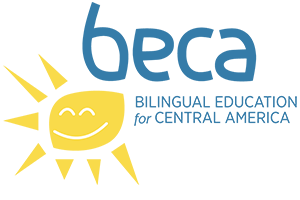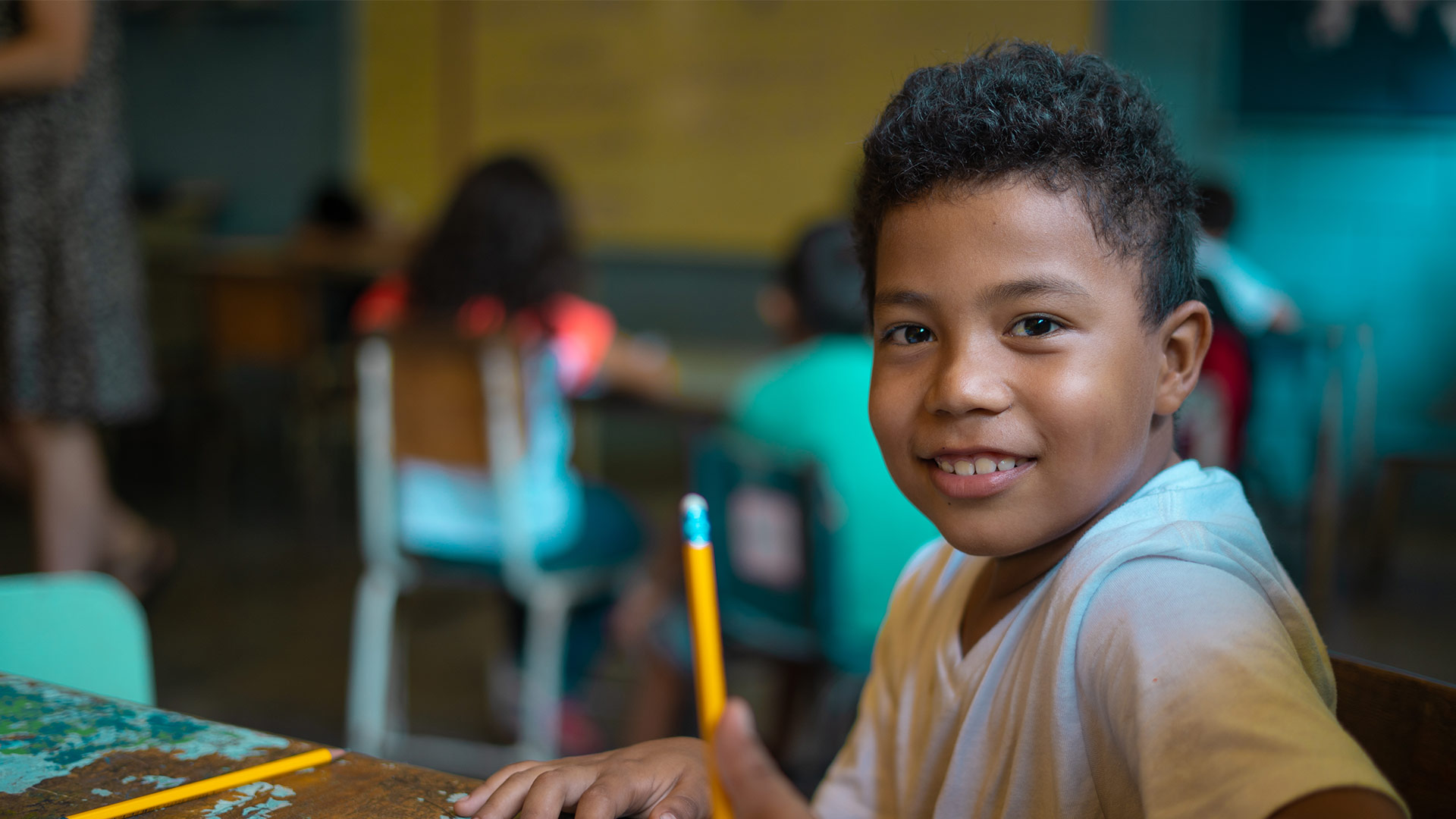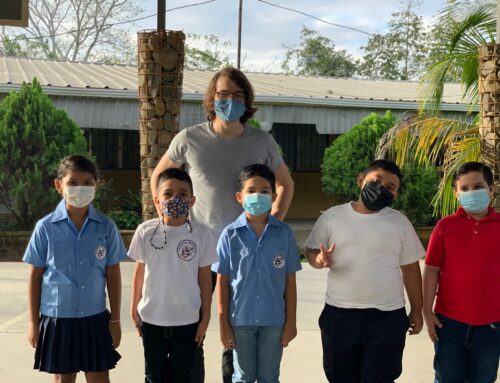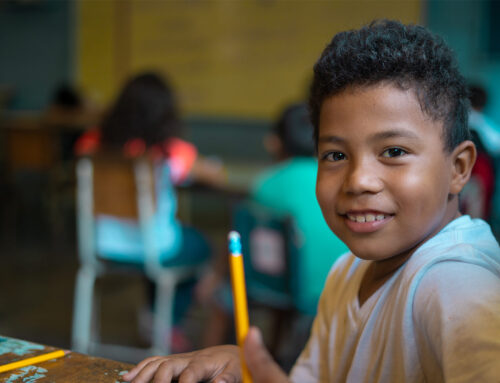How did you find out about BECA?
I actually found out about BECA through a google search. I was looking for teaching positions abroad and knew that I wanted to go to Central or South America. After evaluating and talking to a bunch of programs, I applied to BECA because I really liked the emphasis on forming community relationships and working with Hondurans, rather than trying to impart American ideals onto them.
What did your family and friends say when you decided to move to Honduras?
Some people thought I was crazy, some people thought I was brave, and my mom thought I was “incredibly impulsive.” All of which are a little bit true. For the most part, I received a lot of words of praise and a lot of people commended me for my courage, saying “I could never do that.” To those people, I would say yes you could. I have been doing a lot of thinking down here and really have come to appreciate life and would encourage people to stop playing it safe and take risks. Whether that is moving abroad or simply trying a new food, I urge you to go out and do the things that you have always wanted.
How is life in Honduras different for you than life at home?
A better question would be how is life in Honduras the same as life at home… to which I would say at times it feels as though there are no similarities. As far as culture, climate, food, clothing, etc, things are very different. I have learned that there are so many things at home that I take for granted. Two examples are hot water and a washing machine. Here I have learned that a cold shower is better than no shower (which can happen when the water runs out).
The one similarity that I have seen is the experience of human emotions, which is something that I love about people. Whether or not you speak the same language or live on opposite sides of the globe, I think the feelings of joy, sadness, and love are universal.
How has your experience living in Macuelizo and working at ADJ been?
Out of my comfort zone. I like to say adjusting to life here has three levels.
1) The first is simply getting accustomed to life in Honduras. From the weather (think HOT, HOT, HOT), to the Spanish, to the food, everything down here feels different and new. I have had to learn to let go of my need for control, my penchant for punctuality, and my fear of small/crowded spaces.
2) Next is getting used to life in a rural town, which is exactly what Macuelizo is. There is one grocery store, and it’s about 15 minutes and a $5 “moto” ride away. In addition, there is one church, a few restaurants, and whole plethora of cows, horses, and roosters.
3) The last adjustment is living at ADJ. Not only am living in a new place with a new profession, but I am learning how to navigate life at a children’s home. Being at ADJ has its own unique challenges, such as a stricter dress code, less flexibility in food options, and not being able to leave when I please. However, living here is such a blessing. I am learning to love in a way that I did not know possible and I really feel privileged to be able to experience life here.
What is your favorite part of the day or class to teach?
I wouldn’t say I have a favorite class, but I love the little moments within each class. Whether it’s a hug from a child, a “I love you miss”, or a confused child finally understanding a concept, these are the moments that make each day worth it.
How would you describe your class?
Incredible. Challenging. Goofy. Frustrating. Silly. A handful. Full of potential.
What’s the funniest thing a student has ever said?
Since I teach first grade, sometimes it is less about what the students say and more their mannerisms that crack me up. I have one student, for example, who has more energy than the energizer bunny and just watching him hop around the classroom or play air guitar to no music brings a smile to my face.
There was one instance that did make me crack up and that was when I asked one of my students to please sit down and he looked at me and gave a defiant “N.O.” I should have been mad, but had to smile a little bit because I was unaware that he knew how to spell the word no.
How is ADJ different than the other BECA schools? What makes it unique?
The biggest difference with ADJ and the other BECA schools is that ADJ is part of a children’s home. At ADJ about half of the students come from the Hogar and about half come from the community. This model in itself is unique and provides the best of both worlds. Because we are living on the same campus as our students, we get to develop very deep and meaningful relationships with our students. At times it can be overwhelming, feeling like you are constantly surrounded by children, but I absolutely love living here.
How do you relax/decompress/de-stress when not in school?
Honestly, I watch Netflix, read, draw, browse social media, and listen to music. It can be easy to feel guilty for indulging in some of these pastimes, but I think the familiarity of binge-watching a TV show or listening to Adele on repeat can just what I need after a difficult day. I have had to learn that taking personal time is not only helpful, but necessary to keep me energized as a teacher.
What is your typical weekend like?
It really depends on whether or not I am traveling for the weekend, but if I stay at the Hogar, it is usually a mix of relaxing, catching up on laundry and lesson planning, and hanging out with the kids. During the weekends, the Padrinos and Madrinas (the caretakers of the children) plan various events, ranging from soccer games, to movies, to karaoke, to dance competitions. I really enjoy going to these events because it is fun to get to bond with my students outside of the classroom and the kids really do provide me with so many laughs. Right now, we are in the middle of a Hogar wide soccer tournament, so my Saturdays have been spent playing or watching soccer.
Where have you traveled in Honduras? What was your favorite place?
During my four months here, I have gone on quite a few weekend trips that have helped me get a better glimpse of Honduras. These include trips to Santa Rosa, Copan Ruinas, Tela, and Lake Yojoa, each of which was great for its own reason. I loved Tela because the beach was absolutely stunning and I liked the Caribbean culture there. I loved lake Yojoa for the serene landscape and because I stayed at an amazing hostel called D & D Brewery and Lodge, where I ate delicious food and met some backpackers from around the world. Of all the places that I have been though, Copan Ruinas has to be my favorite. The ruins are breathtaking, thanks to their beauty and their history. The town of Copan Ruinas is also really nice and has so many good restaurants (and probably the BEST grilled cheese in the world). I have been to there twice, and both times I met some really cool people from Canada, Amsterdam, France, Belgium, and Ireland. I am sure that before the year is over, I will go to Copan at least once or twice more.
What’s your favorite Honduran food?
Baleadas. Hands down. If you don’t know, Baleadas are kind of like a Honduran version of a quesadilla, but better. They are made of a large flour tortilla filled with beans, eggs, mantequilla (a mayonnaise-like condiment), and if you are feeling really ambitious, you can add avocado or chicken. I know they probably sound boring, but when done right, they are so, so good.
What is a challenging aspect of living in Honduras?
If you would have asked me this a few months ago, I think I would have said the lack of hot water, the different food, not having access to a car, the bugs, etc. All of these things still get to me from time to time, but I generally don’t think twice about them anymore. The part that is still the most difficult for me is the language barrier. I came to Honduras with an elementary level of spanish and I had hoped that my Spanish would have progressed faster than it has. I am trying to be patient with myself, but at times not being able to communicate what I want to say can be incredibly frustrating. In addition, I feel restricted in my ability to form real friendships with many of the Hondurans, simply because my level of Spanish is so basic. Beyond talking about the weather, food, and soccer, it can be hard to have intimate and meaningful conversations. I hope that by the end of the year, I am able to communicate better.
How was your first day of class compared to where you are now?
It is hard to answer this question completely, because I do not remember a thing about the first day of school. It was such a rush of adrenalin and emotion, that I think my brain blocked it out. Joking aside, I would like to say I have grown as a teacher. I know that it has been a few short months, but I am much more confident and a little bit more relaxed.
How would you describe the experience of working with BECA and living in Honduras for someone thinking about applying?
Incredibly challenging, but incredibly rewarding. I would say this year had been harder than I could have ever imagined, but I would not change a thing about it. The hard times are a part of the process and I can already see positive changes in myself.
I do not say that to scare people, but just to prepare them. I will also say working with BECA and living at ADJ in particular is such a rare and special opportunity. While there are difficult days, the good so far outweighs the bad. When I look at my students and all of the children in the home, I feel my heart begin to swell with love. As cliche as it sounds, I came here to teach them, but I am learning so much more about life, love and compassion than I ever anticipated.







